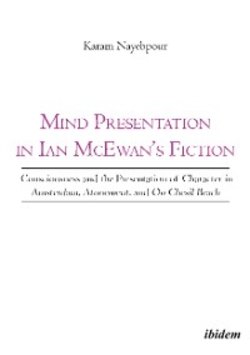Читать книгу Mind Presentation in Ian McEwan's Fiction - Karam Nayebpour - Страница 10
2. Cognitive Narratology and Consciousness (Re)Presentation
ОглавлениеSituated at a point where the narrative and cognitive turns meet, cognitive narratology provides a meeting ground for many disciplines, including literature, history, linguistics, pragmatics, philosophy, and psychology. (Jahn, »Cognitive« 67)
Interiority, experientiality, and fictional minds are, after all, a good part of what we read novels for. (Palmer, Fictional 38)
The research at issue suggests not only that narrative is centrally concerned with qualia, a term used by philosophers of mind to refer to the sense of what it's like for someone or something to have a particular experience, but also that narrative bears importantly on debates concerning the nature of consciousness itself. (Herman, Basic 144)
This chapter explores the fundamental questions of CN, the approach to fictional minds according to Palmer's theories as well as the concept of narrative and narrativity from Herman's perspective. These subjects are the basic theoretical issues for the analysis of the central characters' mental functioning in AM, AT and CB. Under the first subframe, Cognitive Narratology and Narrative Experience, the fundamental questions of CN are examined and then, under a sub-subframe, Fictional Minds and Cognitive Reader, the role of narrative reader is examined within that framework. Further, under the second subframe, Palmer's Approach to Fictional Minds' Mental Functioning, the concepts of fictional minds, their workings within the storyworlds, their presentational modes and their construction and understanding by the reader are discussed. Finally, under the third subframe, Narrative and Narrativity, the concept of narrative and its most important element, what it's like or qualia, as well as reader's narrative experience are explored according to Herman's theories.
